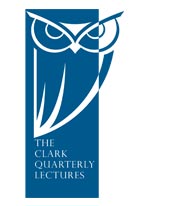Date/Time
Thursday, October 4, 2012
4:00 pm PDT
Location
UCLA William Andrews Clark Memorial Library
2520 Cimarron Street
Clark Quarterly Lecture
—Gregory Mackie, University of British Columbia

In the 1920s the name “Oscar Wilde” underwrote numerous dubious texts, such as Mrs. Chan-Toon’s orientalist “masque” For Love of the King (1922) and a record of contact with Wilde’s ghost, Psychic Messages from Oscar Wilde, which was published by the spiritualist medium Hester Travers-Smith in 1924. Along with other impostures, including forged manuscripts, association copies, and even fake Wildean ephemera, this material forms a critical archival mass for assessing Wilde’s contested literary afterlife. This paper surveys several of these long-forgotten textual masquerades in order to explore how their posthumous circulation cannily put into practice some of Wilde’s own aesthetic theories. Since Wilde promoted all forms of performative artifice—including forgery—as the creation of “beautiful untrue things,” the forgers who annexed the name “Oscar Wilde” to their own materials did so, as it were, on his warrant. These writers turned to their advantage the incipient rehabilitation of Wilde’s discredited reputation by inventing Wilde fakes or, indeed, fake Wildes.
By tracing a history of the production and circulation of “Wilde” forgeries, the lecture illuminates the cultural work done by the rich signifying power of Wilde’s name in the literary marketplace. Despite their varied circumstances, Wilde forgers consistently emphasized Wilde’s Irish identity: in the cases of the Irish-born Mrs. Chan-Toon and Hester Travers-Smith, for instance, fictional claims of familial and national affiliation worked to authenticate personal connections with the playwright. Such claims disclose Oscar Wilde’s literary and personal legacy as the site of a complex and layered form of textual desire for these forgers as well as for those obsessed with unmasking the forgeries, such as bibliographer Christopher Millard, whose marked-up copy of For Love of the King in the Clark’s collection inspired this talk’s title. Such textual desire reveals these figures as players in an ongoing drama whose absent star they impersonated, appropriated, and defended.
Gregory Mackie is Assistant Professor of English at the University of British Columbia. His work concentrates on late-Victorian literature and culture, particularly Oscar Wilde, and early twentieth-century book history, architecture, and design. He has published in University of Toronto Quarterly, Modern Drama, English Literature in Transition, and in the most recent issue of Theatre Survey. He is currently completing a book manuscript, the early stages of which were supported by a Clark research fellowship held in 2008. Tentatively entitled “‘Beautiful Untrue Things’: Literary Forgery and Oscar Wilde,” it explores the flurry of Wilde forgeries that circulated in the literary marketplace of the early twentieth century.

